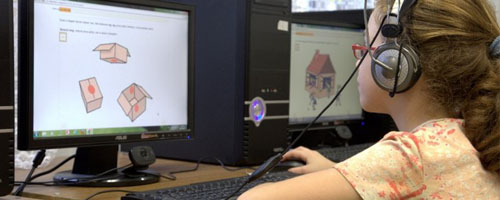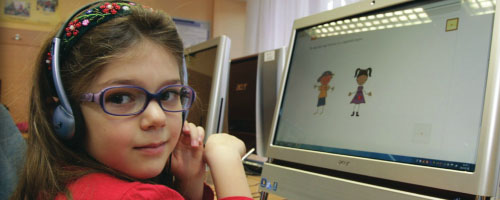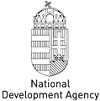Coordinator: Benő Csapó
- Coordinators of the literacy domains:
- Reading:
- Krisztián Józsa
- Mathematics:
- Csaba Csíkos
- Science:
- Erzsébet Korom
- that the minds of students will be cultivated by the development of specific reasoning skills and general thinking abilities
- that students will master the course content prescribed in key disciplines
- that students will be able to apply knowledge gained through schooling to a variety of contexts and situations.
The aim of the work package is to develop scientifically established frameworks for diagnostic assessments and to specify the precise factors to be assessed. Framework development covers (1) reading, (2) mathematics, and (3) science—three domains where early development is known to impact significantly upon later success in a number of areas of learning. 
The availability of measurable, operationalized standards (detailed description of the constructs and factors to be assessed) is the essential prerequisite for the construction of the diagnostic items as well as the tests. These standards are also vital for the interpretation of the results as they specify the skills, abilities and levels of achievement needed at given stages of schooling in order for students to be successful and effective in their studies. The frameworks must be based on the most recent scientific knowledge while at the same time be applicable as a guide to item development. To enhance the analytic power of the diagnostic assessments, framework development is based on a threedimensional model, reflecting three major goals of education:
Previous research has indicated that schooling often fails to meet these goals. The mastering of course material does not have the desired effect expected in developing the thinking skills of the students. Transfer of knowledge is not automatic, so students are not able to utilize their knowledge in novel contexts even if they are able to reproduce what they have learnt in the school context. To improve the effi cacy of primary education for the above-mentioned three goals, frameworks are required which allow progress in each dimension to be assessed separately.
In devising frameworks suitable to assess these goals, the followings can be utilized: (1) research that reports on the learning and development of cognitive skills and abilities or psychological knowledge that applies to education; (2) awareness of the knowledge and skills necessary for later learning and development coupled with information about societal needs and expectations for how this knowledge will be applied; (3) resources that specify the content knowledge that students are expected to master in the chosen range of disciplines.
The outcome of this work package will be reported in three volumes; one for reading, mathematics and science. The first part of each volume will consist of three chapters detailing the scientific foundation of the framework development. In some cases these chapters will be co-authored by renowned scholars from the international community. The second part of each book will elaborate, in detail, on the factors and content to be measured as determined by national experts in each domain.










